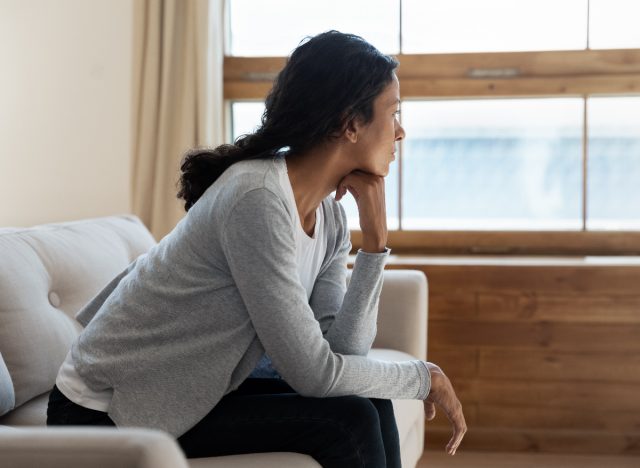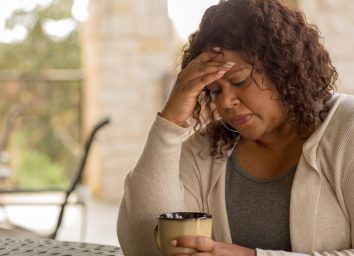Signs A Loved One May Be Struggling With Their Mental Health

Spring is right around the corner, and change is upon us. Some individuals are heading back into the office, and masks at schools are coming off. Warmer weather is coaxing everyone back into the great outdoors. Many of us wish for and anticipate a pre-pandemic-like summer. However, two years of upended social routines and pandemic-related stress have affected us all differently. For some, the isolation, financial uncertainty, fear of infection, and grief of lives lost around them may have contributed to mental health challenges. So today we are going to discuss the signs a loved one may be struggling with their mental health, in addition to how you can help them seek proper treatment.
According to The World Health Organization (WHO), there was a 25% increase in people experiencing anxiety and depression during the first year of the pandemic, with young people and women being the two groups most profoundly affected. Now with social gatherings and events becoming more common, it's also time to check in on your and your loved ones' mental health, and help a friend or family member who you notice may be struggling with it.
Below are some small signs a loved one may be struggling with their mental health, in addition to suggestions on what you can do to help. Read on, and for more mind and body news, check out The 6 Best Exercises for Strong and Toned Arms in 2022, Trainer Says next.
Reducing hobbies or exercise

Hobbies and regular exercise keep many of us happy, healthy, and engaged with our social groups. Listen closely to your loved one if they suddenly stop doing a hobby they love. Other clues might include friends who are avid runners or swimmers who have stopped doing it due to pandemic-related reasons. Encourage them to resume their hobbies and exercise as a way to reclaim something that brought them joy.
Related: Lady Gaga's Mental Health Course Promotes "Being There For Each Other"
Changes in eating or weight

Eating disorders are one of the most commonly diagnosed mental health issues. The pandemic has changed many rhythms of daily life, including the way we cook and eat. If you notice a loved one has expressed strong feelings towards a new restrictive diet or gained or lost a large amount of weight, it may signal an eating disorder.
If your loved one has been recently diagnosed by a professional, you can show your support by avoiding unhealthy language about body image or food (ie. "I feel huge today," or "I wish I could have a bagel, but I'm cutting back before summer"). If you are a roommate or live with the person who might need support, you can even help them by supporting daily habits that make up a healthy routine, like eating around the same time every day, going to bed and waking up around the same time, and devoting time for consistent exercise.
Substance abuse

Studies have shown a high level of correlation between substance abuse and anxiety disorders. One tipsy evening doesn't mean your friend has an addiction. However, recurring incidences of over-drinking or use of illicit drugs could indicate that your friend is self-soothing with drugs or alcohol.
It's important to always approach a loved one from a place of support and desire to help them, instead of leading with judgment or anger. The best way to talk to them about your concern would be to focus the conversation on their health and well-being—especially if their behavior while consuming alcohol has put them or others in danger. Being a member of their support network means reassuring them that you are there for them and seeking mental health support can only make them an overall better friend and person.
Related: The Subtle Warning Signs You're Suffering From Burnout, Expert Says
Avoiding in-person gatherings

Mental health challenges are often accompanied by low energy or persistent fatigue, so much so that even picking up the phone feels insurmountable. Navigating the healthcare system during these crisis moments can be out of reach, so asking how you can be helpful for a close friend can sometimes be the most effective form of support.
Ask your loved one questions like, "What insurance do you use?" "Who is your PCP?" "Can I help you write up a note in your patient portal to get a referral to a mental health provider?" You can even look at mental health provider bios and make recommendations on who you think would be the best fit. Helping them make the first inroads to seeking help can help them take that first step forward.
Be honest with them about your own experience

One of the biggest steps you can take to help remove the stigma around mental health conditions and help friends and loved ones view you as an ally for seeking treatment is to talk about your own experiences. If you've personally sought out care, it can be such an impactful tool in relating to someone who is thinking of starting treatment.
When navigating sensitive conversations, universally we all just want to be understood and not judged. Sharing your own experience with mental health can help bridge those gaps and even the playing field of the discussion.
How to be an ally

Despite the increased public discourse on mental health issues with gymnast Simone Biles, tennis player Naomi Osaka, and Prince Harry leading the way, it is still a tricky balance to help those close to us. If you suspect a friend or close family member is experiencing mental health issues, it is best to speak to them openly and honestly about your concerns. If you are worried about how your concern will be received, it may be helpful to enlist the help of a mutual friend or the friend's family member to confirm your observations ahead of time. Encourage your friend to see a licensed therapist, as it can be very therapeutic to share anxieties and stories with a licensed mental health professional who can help plan a road to recovery.









